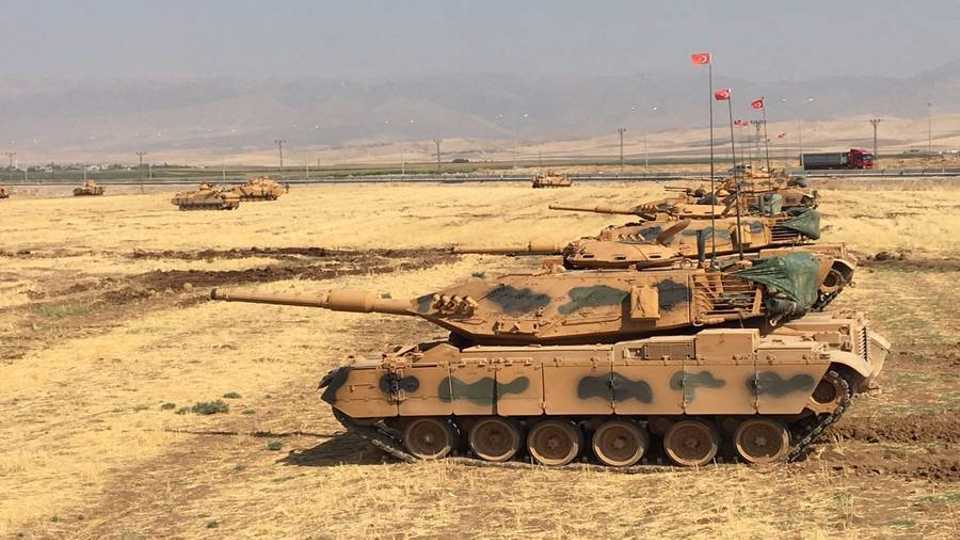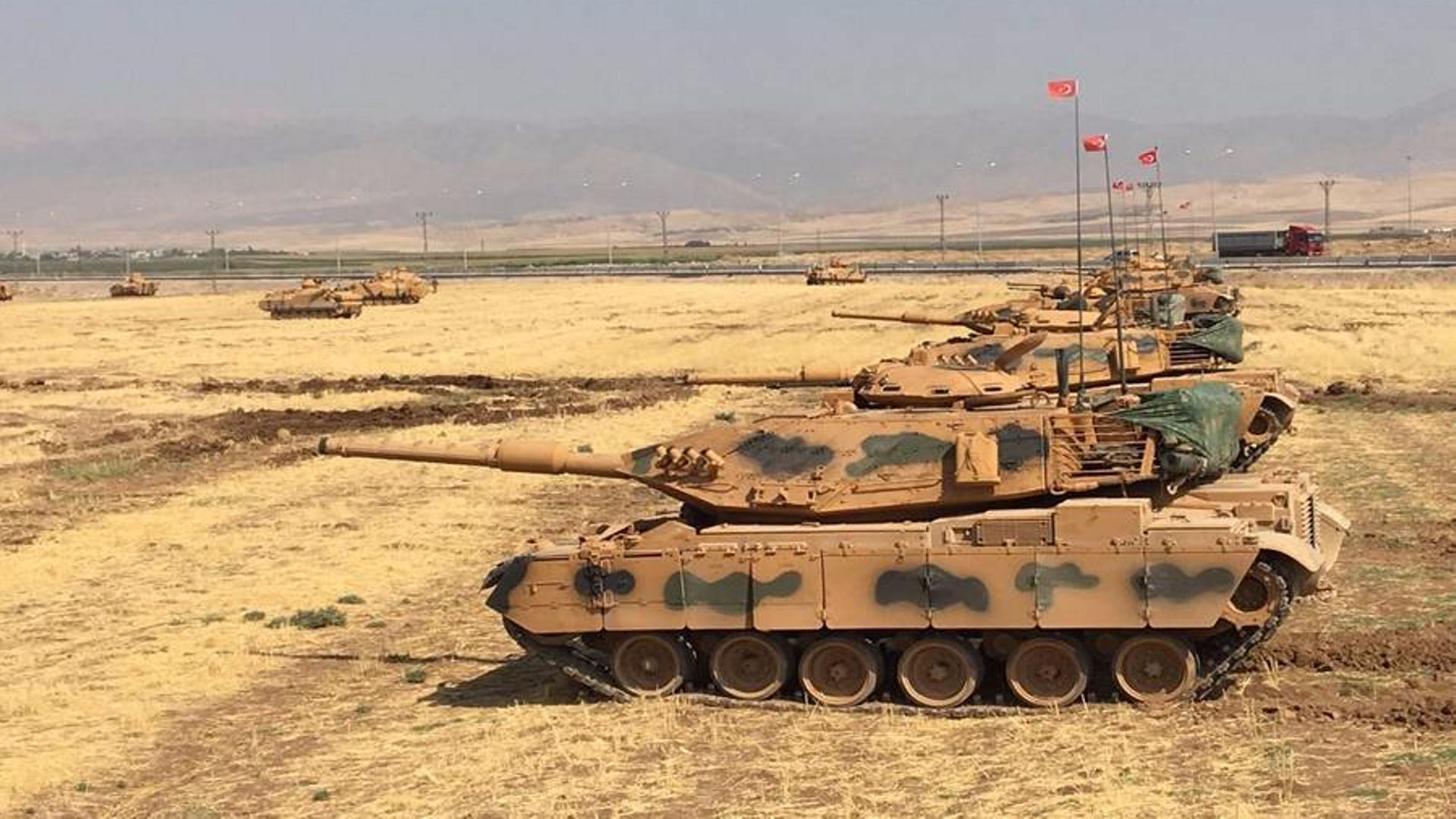
For a third day on Wednesday, the Turkish army is conducting military exercises near its border with Iraq.
Military vehicles including tanks and armoured personnel carriers have been deployed near the Habur Border Gate.
The exercise comes a week before Kurdish authorities hold a referendum on administrative independence in Northern Iraq, which has caused concern for both Turkey, and the international community.
Speaking during the Bloomberg Global Business Forum in New York on Wednesday, Turkish President Recep Tayyip Erdogan suggested that the numbers of troops on the border with Iraq are subject to change depending on the circumstances.
“It depends on the changing conditions. It might decrease or increase. The conditions will determine it.”
KRG
The oil-rich province of Kirkuk is among the contested areas where the vote is planned.
Last week, Iraqi lawmakers voted against the independence referendum and called on the Baghdad government to negotiate with the Kurdistan Regional Government.
The Iraqi government is opposed to the poll, claiming it will affect the war against Daesh, cause instability and violate the Iraqi Constitution.
Turkey, the US, Iran and the UN have all backed Baghdad in speaking out against the referendum.
Anti-missile Defence Systems
Despite mounting criticism from its NATO allies, Erdogan says Turkey will go ahead with its plans to buy an anti-missile defence system from Russia.
“Turkey is their ally, Turkey is in NATO but it can’t buy weapons from its allies. How can this be explained? We have to deal with this. And we are swiftly continuing our negotiations and common working.”
As Syria’s northern neighbour, Turkey has had to deal with much of the blowback from the six-year civil war that has ravaged the country, accepting some 3 million Syrian refugees.
Turkey has also suffered from a spillover of violence from Syria over the years, with both terror groups Daesh and the PKK carrying out deadly attacks targeting security forces and civilians in the country.
The US has been leading a coalition of nations and groups against Daesh in both Syria and Iraq since 2014. Turkey, a coalition member, has however long objected to US support for the YPG group, which forms the bulk of the Syrian Democratic Forces (SDF) fighting Daesh in northern Syria.
Ankara views the YPG as a branch of the PKK, which is recognised as a terrorist organisation not only by Turkey, but also by a number of other nations and international bodies including the US and the EU.










Discussion about this post